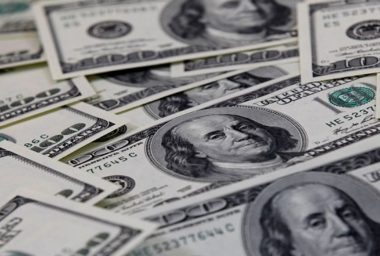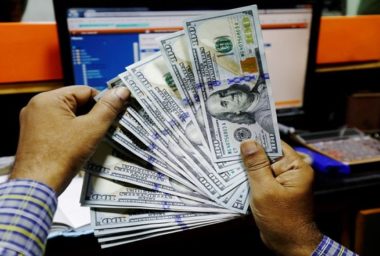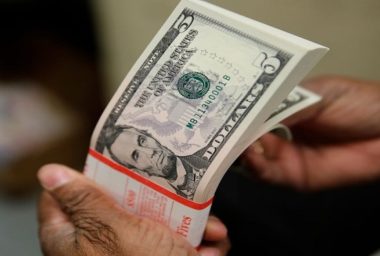-
Authoradmin
-
Comments0 Comments
-
Category
(Bloomberg) — Want the lowdown on European markets? In your inbox before the open, every day. Sign up here.
The euro’s stagnant start to the year might be ending as signs emerge that Europe’s economic growth is reviving.
Traders are unwinding bets against the common currency in the options market, with a gauge of sentiment and positioning over one year now the least negative in 11 months. Europe’s recovering economy, coupled with optimism surrounding China’s trade, will help push the euro more than 4 percent higher in coming months, according to UBS Group AG and Morgan Stanley (NYSE:MS).
The euro has lost ground against the dollar this year and been stuck in a $1.12-$1.14 range in recent months, on fears of a recession in Germany and a dovish turn by the European Central Bank. That has undermined the forecasts of analysts who were predicting at the start of the year the common currency would gain as policy makers removed crisis-era stimulus.
“Range trading can mask an underlying build-up of pressures that get released eventually,” said UBS’ head of currency and rates strategy Themos Fiotakis. “We acknowledge the ECB’s dovishness but are inclined to see growth, in Europe and globally, as the more forward-looking and bullish driver of the euro.”
He sees the region’s recovering data, such as retail sales and industrial production, as overshadowing ECB President Mario Draghi’s subdued rhetoric last week. The Swiss bank predicts the currency will gain to $1.18 in coming months and then end the year at $1.20. The currency traded around $1.13 on Monday, having dropped 1.4 percent this year.
The euro has still shown a degree of resilience in the face of Draghi’s warning that the region faced a number of risks, from Brexit to trade protectionism.
Morgan Stanley is just as bullish as UBS. This week’s German ZEW figures and the flash estimate for the euro-zone Purchasing Managers Index may provide the first indications of an improvement in China filtering through to Europe, said strategists including Hans Redeker.
“Optimism on growth in the rest of the world rebounding should weaken the dollar and help the euro,” Redeker said. “We like buying euro-dollar this week,” he said, adding the U.S. bank is also targeting $1.18. That is a level last touched in September.
While the options market is still bearish, with one-year risk reversals at about 20 basis points in favor of euro puts, sentiment has climbed this month to the highest since before the risk of a populist Italian coalition rattled European markets last May. On technical charts, the currency would need to close above its 55-daily moving average at $1.1315 for traders to target a March high of $1.1448.
Nordea Bank Abp sees it breaking through that to hit $1.1650 within three months.
“We have highlighted the green shoots globally for a while now and at some point, one must put the money where the mouth is,” said Martin Enlund, chief analyst at Nordea. “We go long euro-dollar, as we judge that an Asian rebound is better news for the euro than the dollar.”
Recent Comments
- Starlight Herot on Euro Higher on German Data, Sterling Edges Lower
- Frost Dragont on Euro Higher on German Data, Sterling Edges Lower
- Gwinnettt on Euro Higher on German Data, Sterling Edges Lower
- Vanessat on Euro Higher on German Data, Sterling Edges Lower
- Christinet on Euro Higher on German Data, Sterling Edges Lower
Archives
- April 2025
- March 2025
- February 2025
- January 2025
- December 2024
- November 2024
- October 2024
- February 2024
- July 2023
- July 2021
- May 2021
- March 2021
- February 2021
- September 2020
- May 2020
- February 2020
- December 2019
- November 2019
- October 2019
- September 2019
- August 2019
- July 2019
- June 2019
- May 2019
- April 2019
- March 2019
- February 2019
- January 2019
- December 2018
- November 2018
- October 2018
- September 2018
- August 2018
- July 2018
- June 2018
- May 2018
- April 2018
- March 2018
- February 2018
- January 2018
- December 2017
- November 2017






